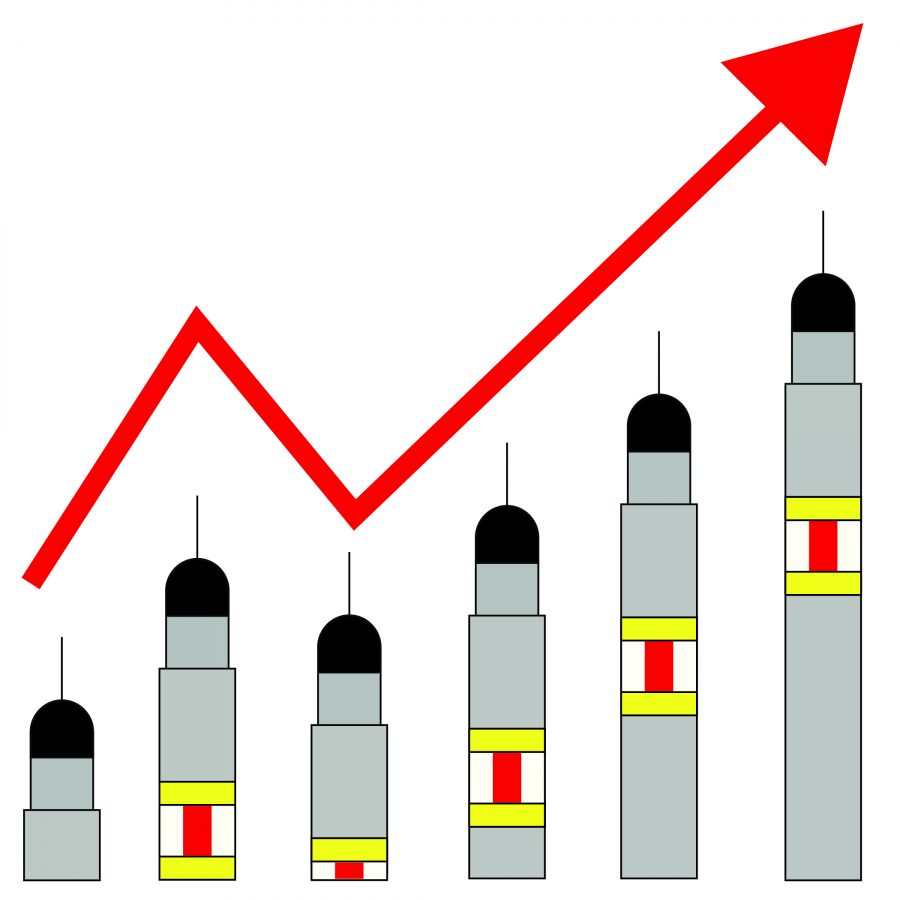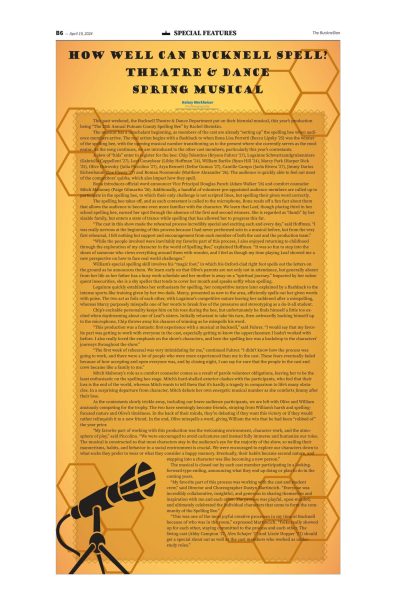Putting a price on the right to a healthy life
September 1, 2016
Megan Grossman, Contributing Writer
The ethical debate regarding capitalist drug companies has been a topic of discussion for several decades. This issue was recently brought to the forefront as a steep increase in the price of the Mylan Pharmaceuticals’ EpiPen, a lifesaving epinephrine self-injector used to treat anaphylaxis, has outraged consumers. According to a report by The New York Times, the cost of the EpiPen has increased by 500 percent (to $608.61 per set) since 2009, creating a financial dilemma for consumers of this cost-prohibitive drug. Although I am a believer in capitalism and appreciate the cost of drug development toward an advanced healthcare system, the EpiPen is comprised of inexpensive epinephrine and an injector which is reported to cost just a few dollars to manufacture. The deliberate and thus far unjustified decision to make this lifesaving means unaffordable for a large sector of society demonstrates that there are limits to the versatility large corporations should be afforded.
The EpiPen is not a luxury item; individuals should not have to choose between a lifesaving source and other necessities. It is utterly ironic that this drug company, which according to a Wells Fargo report in June 2016 has raised the cost of seven products by over 100 percent this year, is part of a healthcare system premised on the oath to “cause no harm.” Mylan’s ability to exploit anxious families raises the question as to the degree of government intervention considered reasonable. Though the actions of Mylan are apparently legal by today’s standards, this instance demonstrates the need for increased governmental involvement in a corporate world where ethics and equity have been stretched.
As demonstrated by the current public outcry from celebrity endorsers, lawmakers, and an online petition which has received over 100,000 supporters, the government needs to heighten its discussion to regulate health care in the public market. Drug companies are currently afforded power that can be too easily abused. Leaving industries at the unchecked helm of medication puts profits before cures and health. It is a flawed system that permits the burden of drug research and development cost to be managed by the United States while benefits occur worldwide. It is also heartwrenching to watch individuals living life tormented by the possibility of a bee sting or an encounter with peanuts, and to know that, relative to the current system, profits are maximized while lifesaving doses of an otherwise accessible drug sit in warehouses unused until expired and discarded.
Beyond the EpiPen situation which brings the debate of medication for profit to the forefront, the people that suffer from rare diseases are lesser likely to find treatments, as pharmaceutical companies are not interested in developing medications void of global profitability. The bottom line is that people of lower economic status and of rarer afflictions are at a significant disadvantage when it comes to feasible health sustainability amidst an underregulated healthcare system. I firmly believe that drug production should not be exclusively a capitalist industry, but rather a system overseen by the government.
Free market advocates defend the pharmaceutical market by stating that medicines are merely a commodity. I suggest that medicines are social goods for which efforts should be made to make them universally accessible. Similar to other realms of public safety overseen by agencies such as the Centers for Disease Control and Prevention and the U.S. Department of Health and Human Services, as well as historical regulation of monopolies in other sectors, it is the government’s responsibility to regulate the health of its citizens. It is regrettable that the complexity of the situation will necessitate extensive review toward compromise; unfortunately, for the 3.6 million American EpiPen users facing curable potential life or death situations every day, the need won’t wait.



























